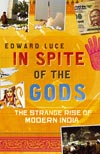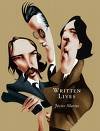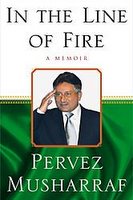Fiction
 The best, and funniest, novel I read this year was the nineteenth-century Oriya writer Fakir Mohan Senapati's Six Acres and a Third (Penguin in India, University of California Press in the US). Translated into English for the first time, this story of life in a village under colonial rule presents a wealth of satiric detail filtered through the voice of a hilariously witty and nimble narrator, who like a village gossip often uses the plural "we" rather than the conventional "I". "People should be gagged and stopped from spreading rumours," declares the narrator, even as he gleefully broadcasts every rumour that reaches his ears. This is one of the foundational Indian novels.
The best, and funniest, novel I read this year was the nineteenth-century Oriya writer Fakir Mohan Senapati's Six Acres and a Third (Penguin in India, University of California Press in the US). Translated into English for the first time, this story of life in a village under colonial rule presents a wealth of satiric detail filtered through the voice of a hilariously witty and nimble narrator, who like a village gossip often uses the plural "we" rather than the conventional "I". "People should be gagged and stopped from spreading rumours," declares the narrator, even as he gleefully broadcasts every rumour that reaches his ears. This is one of the foundational Indian novels.Samrat Upadhyay's second collection of stories The Royal Ghosts (Mariner Books in the US, and Rupa Books in India) was a model of elegant and understated storytelling. Upadhyay's characters are shown living and loving in a Nepal in which tradition and modernity jostle uneasily, and political unrest casts a shadow over daily life. Stories like the title story and "Chintamani's Women" seemed to me to achieve a kind of perfection of craft.
The Algerian novelist Malika Mokeddem's Century of Locusts (University of Nebraska Press) tells the story of a wandering poet Mahmoud, himself accused of a crime, and his journey through the desert in search of his wife's murderer. Mokkedem's superbly incantatory prose ("A dream is the most vital of lies"; "Solitude becomes unbearable when filled with another's indifference" ) is saturated with striking imagery and a close attention to the rhythms of the natural world.
 Vikram Chandra's Sacred Games (Penguin in India, Faber & Faber in the UK) conjured up in encyclopedic detail the sights, sounds and language of Bombay and the moral world of its denizens as seen through the eyes of the gangster Ganesh Gaitonde and the police inspector Sartaj Singh. I don't think I've read a better scene this year than the one in which Gaitonde, still a small-time crook, sells some stolen gold bars to a dealer for an enormous sum. Now Gaitonde does not know if he is being tailed or not: he has crossed the border into a new world. He does not know what to do now and takes refuge among devotees in a temple. The novel is perhaps two hundred pages too long, and the digressions called 'Insets' are tedious, but for most part Sacred Games has the kick of a good masala Coke.
Vikram Chandra's Sacred Games (Penguin in India, Faber & Faber in the UK) conjured up in encyclopedic detail the sights, sounds and language of Bombay and the moral world of its denizens as seen through the eyes of the gangster Ganesh Gaitonde and the police inspector Sartaj Singh. I don't think I've read a better scene this year than the one in which Gaitonde, still a small-time crook, sells some stolen gold bars to a dealer for an enormous sum. Now Gaitonde does not know if he is being tailed or not: he has crossed the border into a new world. He does not know what to do now and takes refuge among devotees in a temple. The novel is perhaps two hundred pages too long, and the digressions called 'Insets' are tedious, but for most part Sacred Games has the kick of a good masala Coke.Gaza Blues (Picador Australia), an unusual collaboration between the Israeli writer Etgar Keret and the Palestinian emigré writer Samir El-Youssef, brought together Keret's distinctively zany, minimalist stories with el-Youssef's beautiful long story, told in a more traditional style, "The Day The Beast Got Thirsty". Residents of a world in which politics is all-pervasive, both Keret and el-Youssef both want to clear a space, through the example of their work, where human beings can recognize each other from either side of the impasse through the commonality of their everyday concerns and desires. El-Youssef's debut novel The Illusion of Return is forthcoming in January.
The idea that literature "should allow us to see the individual rather than the general; to participate in some intimate way in other lives rather than melding them into shapeless abstractions" was also the shaping force behind Literature From The "Axis of Evil" (New Press), a compilation of stories, excerpts from novels, and poems from writers from so-called "rogue states" - Iraq, Sudan, Libya, North Korea and others - and featuring some first-rate works that readers around the world would otherwise never have got to see.
And the Japanese novelist Kobo Abe's profoundly unsettling The Face of Another (Penguin Modern Classics) tells the story of a scientist whose face is badly disfigured in a laboratory accident. With his face swathed permanently in bandages, he feels he is not a human being any more. A plastic surgeon explains to him that the face "is a roadway between oneself and others"; people cannot reach out to a man "without the passport of the face". The protagonist retreats to a quiet hideout and attempts to fashion himself a new face with the help of advanced technology. In Abe's hands the predicament of having no face and then a new face becomes the material of a drama more compelling than any detective novel or thriller. First published in 1964, this is a very worthy resissue.
Non-fiction
 "I will enjoy my beauty because it is given for a short time and joy is a short-lived thing." So said Amrita Sher-Gil, the great Indian painter whose life was tragically snuffed out in 1941 before she was even thirty. Yashodhara Dalmia's Amrita Sher-Gil: A Life (Penguin/Viking) was a splendid study of Sher-Gil's life and work, quoting at length from Sher-Gil's very rich notes and letters and lavishly illustrated with photographs and reproductions of paintings.
"I will enjoy my beauty because it is given for a short time and joy is a short-lived thing." So said Amrita Sher-Gil, the great Indian painter whose life was tragically snuffed out in 1941 before she was even thirty. Yashodhara Dalmia's Amrita Sher-Gil: A Life (Penguin/Viking) was a splendid study of Sher-Gil's life and work, quoting at length from Sher-Gil's very rich notes and letters and lavishly illustrated with photographs and reproductions of paintings.Talking India (Oxford University Press) was an enthralling book-length dialogue on Indian history, culture and politics between Ashis Nandy, one of India's finest intellectuals, and the Iranian scholar Ramin Jahanbegloo. If you want a perspective on how religious riots in India are also manifestations of "secular violence", on how the modern ideology of the nation-state obscures other deep-rooted continuities and traditions, or how globalisation "has created an enormous explosion of expectations, ambitions and greed", this is the book to go to. As enjoyable and stimulating as Amartya Sen's 2005 release The Argumentative Indian.
 Another book which might just as well be called Talking India is In Spite of the Gods: The Strange Rise of Modern India (Little, Brown), by Edward Luce, the South Asia Bureau Chief for the Financial Times between 2001 and 2005. Only the title of this book is poor - I don't even see the need for that word 'strange'. From that point on, the book is a magisterial survey of modern India. Marrying lucid exposition to highly nuanced and trenchant arguments, Luce covers the character and idiosyncracies of the Indian state and the Indian economy, the place of caste in India, Hindu nationalism, and Indian Islam in a series of succulent forty-page chapters each as good as the other. This must rank among the very best books written by a visitor to India.
Another book which might just as well be called Talking India is In Spite of the Gods: The Strange Rise of Modern India (Little, Brown), by Edward Luce, the South Asia Bureau Chief for the Financial Times between 2001 and 2005. Only the title of this book is poor - I don't even see the need for that word 'strange'. From that point on, the book is a magisterial survey of modern India. Marrying lucid exposition to highly nuanced and trenchant arguments, Luce covers the character and idiosyncracies of the Indian state and the Indian economy, the place of caste in India, Hindu nationalism, and Indian Islam in a series of succulent forty-page chapters each as good as the other. This must rank among the very best books written by a visitor to India."For Flaubert, life began in Normandy and ended there….It was the landscape of his youth and all his seasons. It was the taste in his mouth and the verdant prison where he dreamed of deserts". From the very first sentences of Frederick Brown's sumptuous Flaubert: A Biography (Little, Brown) we know that we are reading a literary biography that itself aspires to be a work of literature.
 A very different model of literary biography is to be found in Written Lives (Canongate), a collection of short and often whimsical essays by the Spanish novelist Javier Marias on Conrad and Kipling, Joyce and Faulkner, Turgenev and Nabokov. "The one thing that leaps out when you read about these authors," writes Marias, "is that they were all fairly disastrous individuals", and he has a fine time cataloguing these disasters. Of special note is "Perfect Artists", a lovely essay at the back of the book analysing the photographs of writers.
A very different model of literary biography is to be found in Written Lives (Canongate), a collection of short and often whimsical essays by the Spanish novelist Javier Marias on Conrad and Kipling, Joyce and Faulkner, Turgenev and Nabokov. "The one thing that leaps out when you read about these authors," writes Marias, "is that they were all fairly disastrous individuals", and he has a fine time cataloguing these disasters. Of special note is "Perfect Artists", a lovely essay at the back of the book analysing the photographs of writers. And another kind of literary conversation can be found in the writer Alberto Manguel's short and very beautiful memoir, With Borges (Telegram). The book recounts in loving detail Manguel's long association with the great Argentine writer, which began when he was chosen as a schoolboy by Borges to read to him in the evenings. Manguel writes that Borges's massive personal library was "like every other reader…also his autobiography" and that Borges believed "against all odds, that our moral duty was to be happy, and be believed that happiness could be found in books, even though he was unable to explain why this is so". Pure pleasure.
And another kind of literary conversation can be found in the writer Alberto Manguel's short and very beautiful memoir, With Borges (Telegram). The book recounts in loving detail Manguel's long association with the great Argentine writer, which began when he was chosen as a schoolboy by Borges to read to him in the evenings. Manguel writes that Borges's massive personal library was "like every other reader…also his autobiography" and that Borges believed "against all odds, that our moral duty was to be happy, and be believed that happiness could be found in books, even though he was unable to explain why this is so". Pure pleasure.Climbing The Mango Trees (Alfred A. Knopf), the Indian actress and food writer Madhur Jaffrey's memoir of her idyllic childhood in the fold of a large joint family in Delhi and Kanpur, is a much better book than its hackneyed title suggests (There must be a ban from 2007 onwards on the words 'guava', 'mango' and 'cinnamon' in the title of any Indian writer's work.). Full of savoury reminiscences, Jaffrey's book is also an ode to a way of family life now on the wane in the age of the nuclear family, and to the syncretic culture of north India, with Muslim and British influences overlaid upon traditional Hindu life.
And two good nonfiction reissues were Sasthi Brata's anguished autobiography from the sixties My God Died Young (Penguin) and Pankaj Mishra's travel classic from the nineties Butter Chicken in Ludhiana (Picador).
But since good books are - like diamonds - forever, and in a manner of speaking all new books owe their existence to the schooling and influence of older books, no personal list of books of the year should be confined only to books published in that calendar year: they should also include older books read that year and surprising discoveries made that year. Of the many books about whose existence I learnt in secondhand bookshops this year, two stood out.
 Renoir, My Father, which I found in a used-books store in Cambridge in June, is a luxuriant portrait of the Impressionist painter Pierre Auguste Renoir by his son, the filmmaker Jean Renoir. It is rich with the thoughts of both the illustrious painter ("I like painting best when it looks eternal without boasting about it: an everyday eternity, revealed on the street corner: a servant-girl pausing a moment as she scours a saucepan and becoming a Juno on Olympus") and his illustrious son ("A work of art is the candid, and often unconscious, expression of the personality of the artist who created it"). The book is available now in a new edition as a New York Review of Books classic.
Renoir, My Father, which I found in a used-books store in Cambridge in June, is a luxuriant portrait of the Impressionist painter Pierre Auguste Renoir by his son, the filmmaker Jean Renoir. It is rich with the thoughts of both the illustrious painter ("I like painting best when it looks eternal without boasting about it: an everyday eternity, revealed on the street corner: a servant-girl pausing a moment as she scours a saucepan and becoming a Juno on Olympus") and his illustrious son ("A work of art is the candid, and often unconscious, expression of the personality of the artist who created it"). The book is available now in a new edition as a New York Review of Books classic.And Faith and Frivolity, a collection of essays by the now-forgotten Indian writer Krishna Kripalani which I found in Bombay's excellent New & Secondhand Bookshop in Dhobi Talao, revealed a most agile and perceptive mind expressing itself in a sparkling epigrammatic style.
Readers are invited to name their own books of the year - but no more than three or four, please (books, that is, not readers). A happy New Year to you all, and may you have a 2007 free of Dan Brown and Paulo Coelho...

 The Turkish poet Orhan Veli Kanik (1914-1950), in the honorable tradition of poets the world over, lived in penury, drank too much for his own good, and died young. He left behind a body of work sometimes accused of being too simplistic, even unpoetic, but Kanik's rebellion was actually against what is conventionally thought of as the "poetic" - lyrical effusions, elaborate conceits, stifling metres.
The Turkish poet Orhan Veli Kanik (1914-1950), in the honorable tradition of poets the world over, lived in penury, drank too much for his own good, and died young. He left behind a body of work sometimes accused of being too simplistic, even unpoetic, but Kanik's rebellion was actually against what is conventionally thought of as the "poetic" - lyrical effusions, elaborate conceits, stifling metres.